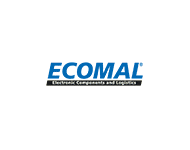
© lavitreiu-dreamstime.com
Analysis |
High-efficiency products - becoming the trend in PV industry
The market share of diversified residential market may exceed 50% in 2015, high-efficiency products are becoming the trend in PV industry
TetraSun, a high-efficiency silicon PV cell manufacturer, was merged by First Solar recently. By officially entering the silicon PV cell territory, First Solar is planning to pilot-run 100MW high-efficiency mono-si cells in 2014 and start mass production in 2015. According to EnergyTrend, a research division of TrendForce, from process equipment producers and cell module manufacturers to material suppliers, they all have come up with several solutions involving high-efficiency products. It’s obvious that high-efficiency products have become the trend in PV industry.
EnergyTrend indicates that roof-top systems have become the focus of subsidy policies, which causes the market share of diversified markets such as residential systems and small/medium commercial systems to continuously increase in Europe, North America, and Japan. Based on EnergyTrend’s estimation, the market share of diversified residential market is likely to exceed 50% by 2015. Relevant users in this market pay special attention to performance during the facility evaluation because they are hoping to replace conventional power with solar power. Relatively, the price range that they can accept is larger. Therefore, the visibility of high-efficiency products will significantly increase in the future.
Besides, since the minimum price has been set according to the new agreement between China and Europe and most of the subsidy has been allocated to the diversified residential market, it will put pressure on Chinese manufacturers that specialize in cost. Also, it will allow the countries that specialize in technology, such as Taiwan, Japan, USA, and Europe, a chance to take a break.
Judging from the spot market’s overall performance, both upstream and downstream manufacturers in China and Taiwan have accepted the price to be revised upward. Last week’s polysilicon price continues to increase with average price reaching USUSD 16.353/kg, a 0.2% rise. For Chinese domestic demand, the price range still falls between RMB 130/kg- RMB 140/kg. For silicon wafer, major silicon wafer manufacturers are planning to revise the price upward. Since they are still bargaining the price with the buyers, last week’s average price remains stable. For cell, Taiwanese manufacturers are intending to lower the price to maintain capacity utilization rate. Thus, the price continues to decline with average price dropping below USUSD 0.40/Watt to USUSD 0.398/Watt, a 0.75% decline. For module, since Chinese manufacturers are observing the development of quota allocation, last week’s lowest price turned out to be USUSD 0.55/Watt, while average price remains unchanged.






